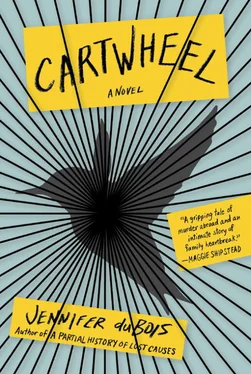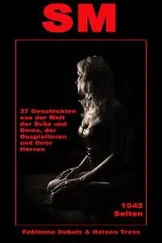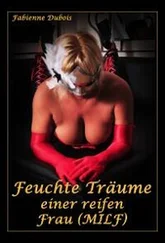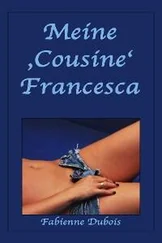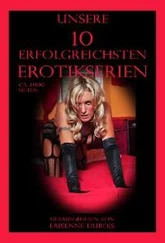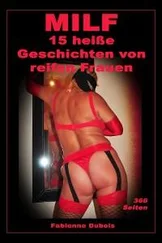“No,” said Anna. “You’re not really interested in Katy. That’s not what you’re in it for.”
“Well,” said Eduardo. “I suppose if I was really interested in Katy, instead of the law, then I’d be a much bigger monster than even you think I am.” He put his hands faceup on the table and stared at the radial symmetry of his palms. He was always struck by the recurrences of shapes in nature—by the clean economical indifference of recycling the same structure for a feather, and a leaf, and a heart. “If Lily had committed this crime,” he said without looking up, “what do you think would be the most empathetic way to treat her?”
“She didn’t do it.”
“I understand you think that.”
“She didn’t.”
Eduardo looked up. “We’re speaking abstractly. I’m just shifting your premise to ask you if it changes your conclusion about my sense of empathy.”
“I am not shifting my premise.” Anna sounded disgusted. Perhaps she was starting to believe that this was all Lily would have had to do. “My sister is a good person. She is a wonderful person. She didn’t do it, and you don’t understand a thing about her.”
Eduardo nodded quickly. “I think that’s true. I think I don’t understand her very well at all.” He trilled his fingers lightly on the table.
“I’m not saying she’s, like, beyond comprehension. She’s not even that unusual. It’s just that you, personally, don’t understand her.”
“I certainly don’t understand why she did what she did.”
“She didn’t do what she did. I mean, she didn’t do it at all.”
“Can I ask you a hypothetical question?”
“No.”
“What do you think would have made Lily act like she wasn’t herself?”
“You’re just going to ask me the question anyway? Doesn’t that mean your first question was hypothetical?”
“I think it means it was rhetorical.”
“You want me to tell you what imaginary circumstances could have made Lily commit a crime that she did not commit in real life. For our imaginations.”
“We can speak more broadly than that.”
“You’re unreal. Are you actually any good at this job?”
“Maybe not.” Eduardo traced his coffee’s meniscus with his spoon. “But that’s why we’re here, isn’t it? Because I’m doing my job badly and you are going to help me do it better by telling me where I’m going wrong? So, I’m listening. What would you like me to know?”
Anna was silent. She’d spread her fingers out on the table, stretching them slightly beyond their natural extension, in a gesture Eduardo recognized from Lily. He wondered if this was a shared long-standing habit, or something new that Anna had unconsciously adopted only after seeing her sister in captivity.
“Because I certainly have plenty of questions I could ask you, if you don’t feel like you have any,” said Eduardo. “Really, it’s your decision.”
“She didn’t do it.”
“Yes. You’ve expressed that opinion.” Eduardo put down his spoon and flipped open his notepad, landing on a grocery list written in Maria’s loopy script. He squinted, pretending to study it. “Okay. Here’s one. Was Lily much of a gymnast?”
“What?”
Eduardo put down the list. “She did a cartwheel when she was first interviewed. Did you know that?” Of course Anna knew this. Everyone knew this. If a random consumer of news anywhere in the world knew two things about Lily Hayes, the first was that she had murdered Katy Kellers, and the second was that she had done a cartwheel the very next day.
Anna glared. “You’d probably want to move around, too, if you’d been cooped up for hours and hours.”
“It was a pretty good one, actually,” said Eduardo. “Was she a very talented gymnast, growing up?”
“A lot of girls can do cartwheels.”
“You look like you’re both pretty athletic.” They weren’t. Anna was the only athlete in the family. Eduardo tapped his spoon against his cup. “But still. You’d think she’d realize that it looked a little odd. A little heartless. Given the circumstances. I mean, she’s a very smart girl, right? This is what I’m discerning from her academic history, at any rate—good grades, a 2300 on the SAT.” It had been a 2280, and he took a sip of coffee to give Anna a chance to correct him. To her credit, she did not.
“She’s just naïve,” said Anna. “She just had no idea that anyone was going to hold any of this stuff against her.”
“And why was that, do you think?” said Eduardo. “Was she not accustomed to people holding anything she did against her?”
Anna slammed her eyes to the ground. Eduardo took another sip of his coffee, letting the silence between them sit. “I understand Lily’s nickname used to be ‘Lil the Pill,’ ” he said at last.
“You’ve got to be kidding.”
“Am I right that, in English, ‘pill’ is slang for a ‘tiresomely disagreeable person’?” It had been her nickname as a child, a fact that the press had decided to willfully misinterpret—suggesting that the word “pill” might connote trouble of a particularly sexual variety, or be a reference to a drug habit of some kind. Eduardo had uncovered no evidence to support either of these conclusions.
“It was from when she was a kid,” said Anna. “You cannot possibly be serious.”
“Did she earn the nickname by being a tiresomely disagreeable person?”
“What are you talking about? She was a kid. This is ridiculous.”
“You find this irrelevant?”
“I don’t find it irrelevant. It is irrelevant.”
“Okay,” said Eduardo, closing his notepad with a thump. “Maybe you’re right. Here’s a question that you may find more relevant. I understand your sister had a history of killing animals?”
Anna blanched and looked down at the table, but seemed quickly to realize that she’d need to look Eduardo in the eye in order to answer. She raised her head and locked eyes with him. He could feel how uncomfortable this was for her, and not just because of who he was and what they were discussing. In her gaze was a bone-deep, lifelong discomfort with eye contact in general—Eduardo should know—and yet she did it anyway. “That’s not true,” she said.
“No?” said Eduardo. “She never killed an animal?”
“No,” said Anna. There was a wavering in her face, but not her voice.
“Not one?”
“No.” This time she sounded angry. “She hated people hurting animals. She hated aggression of all sorts. She was a vegetarian in high school. She hated that picture of Sebastien and that dead animal. She even talked about it after she dumped him.”
After she dumped him . There was a millisecond-long flicker in Anna’s eyes as she heard her sentence land. And Eduardo understood, all at once, that Anna had made a mistake, and that she knew it was a mistake, and that she could not tell whether Eduardo had noticed it, or whether it mattered if he had. Lily and Sebastien had broken up the night Katy died. And Lily had spoken with Anna, apparently, that same night. Eduardo took a sip of his coffee, finally letting Anna look away.
“I’ve seen that picture of his,” said Eduardo. “Gruesome.” He opened a sugar packet with his thumbnail and took some time shaking it sloppily into his cup. “What did you say to Lily about it?” He would not ask her to report what Lily had said, only to reflect on what she, Anna, had advised. He would not let her know what kind of a mistake it was—he would show her neither its nature nor its size.
“Well,” said Anna carefully. “I didn’t actually talk to her.”
“Ah.” Eduardo nodded. It was a voicemail, then. Lily’s emails had been scoured, of course, along with the calls she’d made from her cell phone; all of that was chronicled and accounted for, and there was no communication to Anna and the United States on the night Katy Kellers was killed. But it would seem Lily had called Anna from somewhere else—Sebastien’s landline, perhaps—and, unbelievably, it would seem she had left a message. Eduardo felt a flutter in his chest, a little scherzo of near laughter. He clenched it back. “So why did she call you, do you think?” he said lazily, stirring his coffee. His best maneuver, now as always, was projecting a sense that his grip on facts was vague.
Читать дальше
